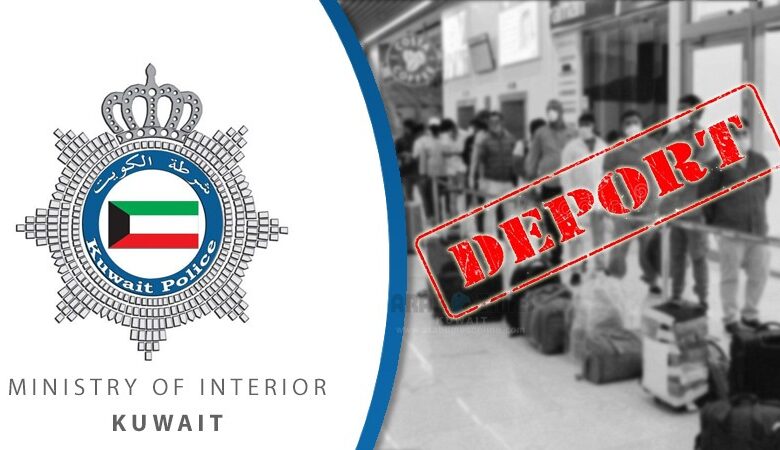More than 19,000 expatriates deported in first half of 2025

Authorities in Kuwait, spearheaded by the Ministry of Interior (MoI) have been implementing a no-tolerance policy against residency violators and those involved in criminal activities, resulting in the arrest and deportation of over 19,000 expatriates in just the first half of this year.
The ongoing widespread campaign is aimed at reducing if not eliminating the presence of illegal residents in the country, and curbing unlawful activities by deporting those arrested in public interest, or being involved in alcohol or drug-related cases.
The deportations were through both judicial and administrative channels. While judicial deportations followed formal court rulings for crimes ranging from theft and drug possession to violent offenses, summary administrative deportations were for a range of offenses.
According to official details released by the MoI, the authorities have carried out dozens of coordinated security campaigns across the country since the start of 2025, leading to a spike in the number of law violators arrested and deported. The security campaign is part of Kuwait’s broader strategy to regulate its labor market, enforce immigration laws, and safeguard internal security.
Figures from the MoI show that on 13 January the ministry deported 648 persons. These deportations stemmed from 28 separate security campaigns, which also resulted in the detention of 509 visa violators. The operations primarily targeted individuals with expired visas or those working in violation of their residency status.
Between 19–23 January the authorities conducted coordinated raids across the country that led to the arrest of 461 persons and the deportation of an additional 505. Notably, many of those deported during this wave were not only in breach of immigration regulations, but were also involved in more serious criminal offenses.
Law enforcement efforts escalated further between 11–18 May, with another concentrated round of security operations that resulted in the arrest of 1,084 violators of residency regulations, as well as those engaged in illegal employment or working under unauthorized sponsors.
Perhaps the most substantial enforcement phase took place during May and June, when the Deportation and Detention Department at MoI announced the deportation of around 6,300 expatriates. Those deported in this wave included individuals apprehended through wide-reaching security campaigns and those referred from departments such as criminal investigations, labor inspection units, and residency affairs.
The arrests and deportation in the first half of the year underlines the fact that despite the opportunity offered during multiple amnesty campaigns in the past to rectify their residency status or exit the country voluntarily, thousands of illegal residents chose to stay on, in the belief that they could evade arrests.
However, following the end of the amnesty period, thousands of illegals were arrested, fingerprinted and deported and barred from entering Kuwait and the five other Gulf Cooperation Council (GCC) countries as per an agreement between members of the six-nation GCC bloc.
Amnesty periods in the past have allowed thousands to exit the country or amend their residency status. The most recent amnesty initiative ran from 17 March to 30 June, offering illegal residents an opportunity to either correct their status or voluntarily exit the country without penalties. The amnesty period was subsequently extended by a further month.
Media reports indicate that an estimated 1,000 people per day visited the Residence Affairs Departments between April and June of 2024, during the then prevailing amnesty period, and either regularized their stay or left the country voluntarily.
Although Kuwait is reliant on a large expatriate workforce for many of the services rendered to the county, the authorities have over the past few years tightened residency and labor law enforcements due to demographic and economic pressures.
While taking a tough stance on illegal residents, the government has also not spared those who aid and abet such unlawful activities, irrespective of whether the perpetrators were citizens or residents. Penalties for those who shelter or employ undocumented migrants range from KD600 per offense in fines and/or up to six months imprisonment.












